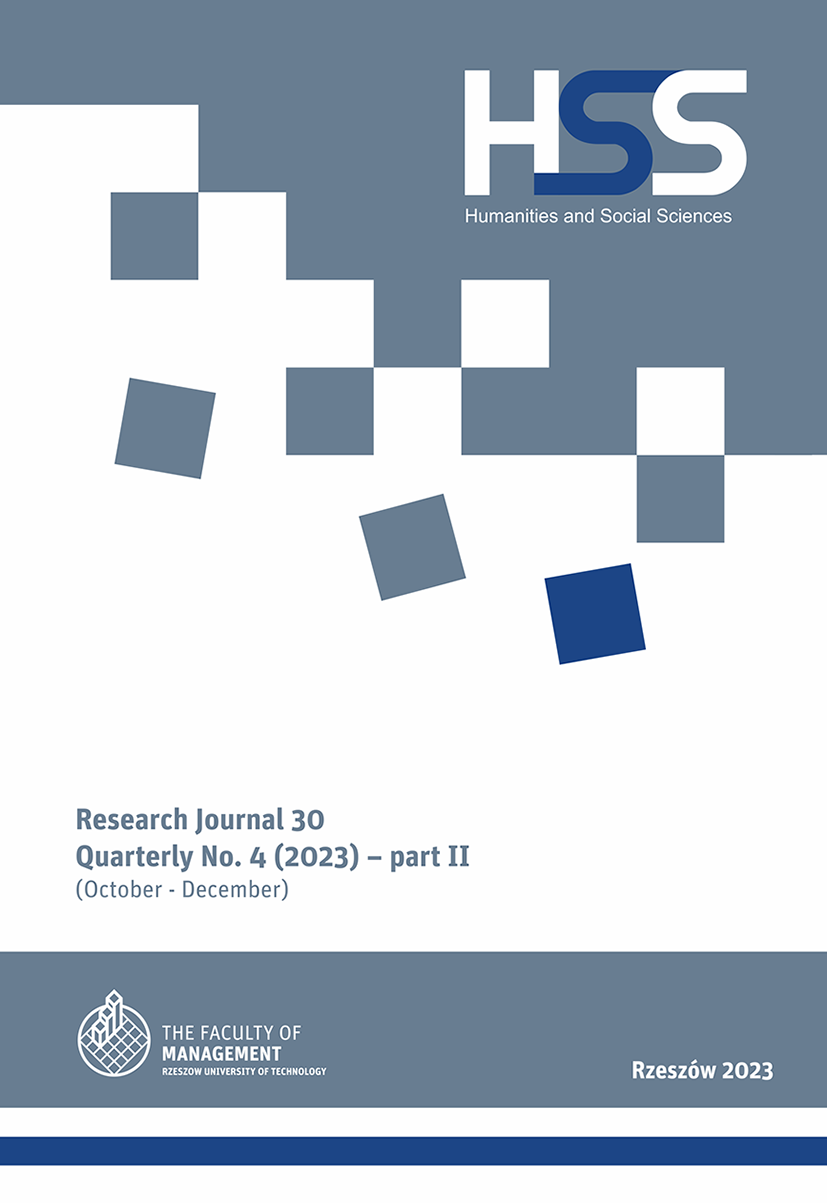Abstract
Consumer behavior has evolved over the years, leading to changes in the perception of consumption and the emergence of trends that help create a profile of the modern consumer. The first two decades of the 21st century brought significant changes in consumer behavior, under the influence of the Internet and social media. The purpose of this paper is to present the profiles of Generation Z consumers, and to see if the TikTok application plays an important role in brands’ communication with Generation Z. Virtual communication has become widespread; this poses a challenge for brands, especially among the younger generation. The study shows that as age increases, the time a person has had an account on TikTok decreases, as does the appreciation of this application.
References
Azpeitia, J. (2021). Social Media Marketing and its Effects on TikTok Users, International Bussines.
Bahiyah, O., Wang, D., (2020). Watch, Share or Create: The Influence of Personality Traits and User Motivation on TikTok Mobile Video Usage. „International Journal of Interactive Mobile Technologies”, 14(04).
Baran, M. (2014). Pokolenie Y – prawdy i mity w kontekście zarządzania pokoleniami. „Marketing i Rynek”, nr 5.
Bucknell, C., Kottasz, R. (2020). Uses and gratifications sought by pre‐adolescent and adolescent TikTok consumers. „Young Consumers”, 21(4).
Cervi, L., Tejedor, S., Llado, C.M. (2021). TikTok and the new language of political communication, Culture, Language and Representation, Vol. XXVI.
Cervi, L. (2021). TikTok and Generation Z. „Theatre, Dance and Performance Training”, 12(2).
Chan, S. (2021). TikTok becomes the first non‐Facebook mobile app to reach 3 billion down loads globally. Access on the internet: https://sensortower.com/blog/tiktok-downloads-3-billion.
Cilliers, E.J. (2017). The challenge of teaching Generation Z. „PEOPLE: International Journal of Social Sciences”, Vol. 3, Issue 1.
Dadić, M., Jercić, E., Dadić, M. (2022). Behavior of Generation Z. Proceddings of IAC in Vienna 2022.
Dilon, C. (2020). Tiktok Influences on Teenagers and Young Adults Students: The Common Usages of the Application Tiktok. „American Scientific Journal of Engineering, Technology and Sciences”, 68(1).
Dilthy, W. (1924). Gesammelte Schriften, t. V, przekł. polski: K. Wyka, Rozwój problemu pokolenia. Warszawa.
Dirir, S.A. (2022). Investigating the impact of TikTok on the Generation Z buying behawior and their insight of selecting brands. „Journal of the Market Research Society”.
Dybka, S. (2017). Trendy w zachowaniach konsumentów jako czynnik determinujący rozwój przedsiębiorstwa. „Zeszyty Naukowe Uniwersytetu Ekonomicznego w Katowicach”, nr 338.
Francis, T., Hoefel, F. (2018). ‘True Gen’: Generation Z and its implications for companies. McKinsey&Company.
Gracz, L., Ostrowska, I. (2014). Młodzi nabywcy na e-zakupach. Warszawa: Wydawnictwo Placet.
Hardey, M. (2011) Generation C content, creation, connections and choice. „International Journal of Market Research”, Vol. 53, No. 6.
Reisenwitz, T.H., Iyer, R. (2009). Differences in Generation X and Generation Y: Implications for the organization and marketers. „Marketing Management Journal”, Vol. 19, Iss. 2.
Jiang Xiao, Yu (2019). Research on TikTok APP Based on User-Centric Theory. „Applied Science and Innovative Rese”, Vol. 3, No. 1.
Juda, Ł. (2021). #Jaramniewiara. Ewangelizacja online na platformie TikTok. „Media i Społeczeństwo”, nr 14/2021.
Kopertyńska, M.W., Kmiotek, K. (2014). Budowanie zaangażowania pracowników pokolenia Y. „Management Forum”, nr 4.
Li, Z. (2022). Strategies Behind Tik Tok’s Global Rise [In:] Proceedings of the 2022 International Conference on Social Sciences and Humanities and Arts (SSHA 2022), Vol. 653, Atlantis Press.
Negreira, C., Herrero, J.V., Garcia, X.L. (2022). Blurring Boundaries Between Journalists and TikTokers: Journalistic Role Performance on TikTok. „Media and Communictation”.
Newman, N. (2011). Mainstream media and the distribution of news in the age of social media (Publisher's version, RISJ Reports). Reuters Institute for the Study of Journalism, Department of Politics and International Relations, University of Oxford.
Olkowska, A., (2020). Profile czasopism z zakresu nauk społecznych w wybranych mediach społecznościowych. „Com.press”, 3.
Omar, B., Dequan, W. (2020). Watch, Share or Create: The Influence of Personality Traits and User Motivation on TikTok Mobile Video Usage. „International Journal of Interactive Mobile Technologies (iJIM)”, 14(04).
Ostasiewicz, S., Rusnak, Z, Siedlecka, U. (1999). Statystyka. Elementy teorii i zadania. Wrocław: Wydawnictwo Akademii Ekonomicznej we Wrocławiu.
Pandit, V. (2015). We Are Generation Z: How Identity, Attitudes, and Perspectives Are Shaping Our Future. United States, Brown Books Publishing.
Pellicer, M. (2019). TikTok: Cómo puede ayudar a los medios de comunicación [TikTok: How it can help the media]. Miquelpellicer. Access on the internet: https://miquelpellicer.com/2019/07/tiktok-como-puede-ayudar-a-los-medios-de-comunicacion
Priporas, C.V., Stylos, N., Fotiadis, A.K. (2017). Generation Z consumers' expectations of interactions in smart retailing: A future agenda. „Computers in Human Behavior”, 77.
Rezzek, A. (2022). How Brands Go Viral: An Analysis of Successful Brand Marketing on Tik Tok with Gen Z, Honors Theses. 2654.
Scherr, S., Wang, K. (2021). Explaining the success of social media with gratification niches: Motivations behind daytime, nighttime, and active use of TikTok in China. „Computers in Human Behavior”, Vol. 124.
Sloane, G., Rittenhouse, L. (2019). FIRST LOOK AT TIKTOK'S GAME PLAN: Leaked pitch deck reveals how the app is luring brands. Spoiler alert: there will be gummy bears. „Advertising Age”, 90(20).
Stillman D., Stillman J. (2017). Gen Z Work: How the Next Generation Is Transforming the Workplace, HarperCollins. New York.
Tang, L., Omar, S.Z., Bolong, S., Zawawi, J.W.M. (2020). Influence Of Tiktok Usage Toward Positive Emotion And Relationship. The European Proceedings of Social and Behavioural Sciences.
Tankovska, H. (2021). TikTok – Statistics and Facts. Access on the internet: https://www.statista.com/topics/6077/tiktok/#dossierSummary.
Waśko, R. (2016). Wybrane aspekty różnicujące pokolenie X, Y i Z w kontekście użytkowania nowych technologii i Internetu [In:] Rykiel, Z., Kinal, J., Socjologia codzienności jako niebanalności. Rzeszów.
Yang, Y. (2020) Understanding Young Adults' TikTok Usage. UCSD Department of Communication.
Żarczyńska-Dobiesz, A., Chomątowska, B. (2014). Pokolenie Z na rynku pracy – wyzwania dla zarządzania zasobami ludzkimi. „Prace Naukowe Uniwersytetu Ekonomicznego we Wrocławiu”, nr 350.


